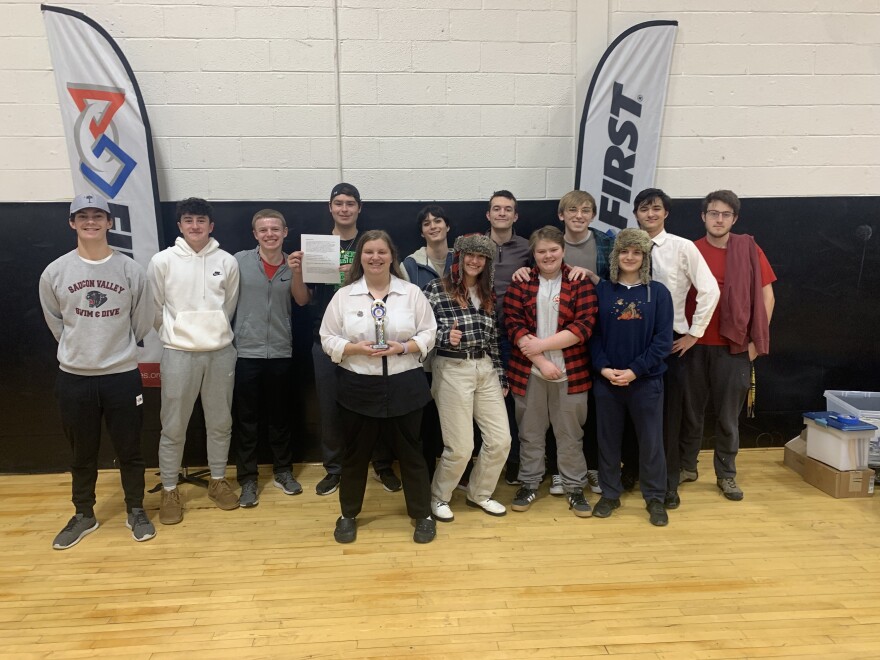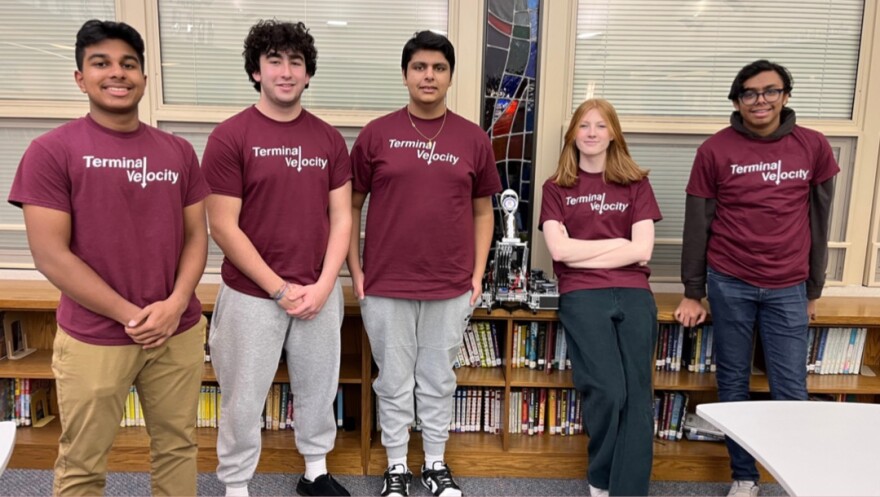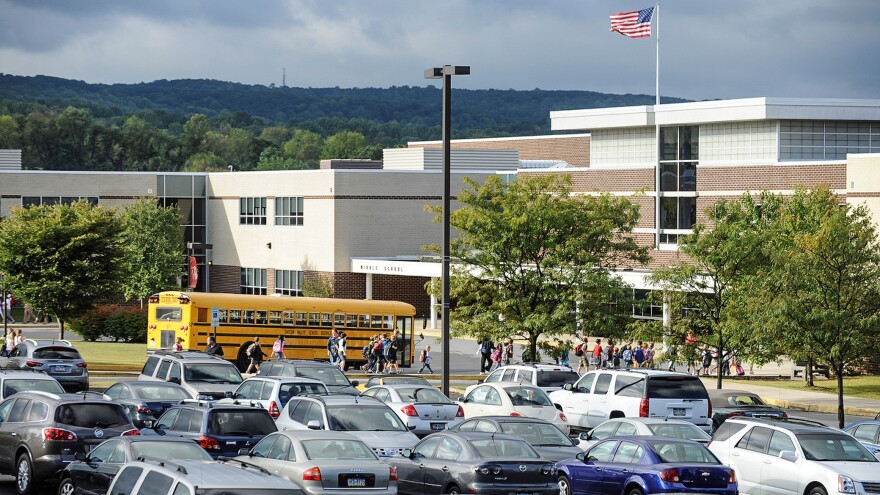LOWER SAUCON TWP., Pa. — When it comes to the FIRST Tech Challenge’s student robotic competitions, the main theme is gracious professionalism, Robert Svitilla said.
“That's trumpeted in everything they do,” said Svitilla, lead mentor of Saucon Valley’s robotics team. “Throughout the entire day, judges are looking at how students carry themselves, how they interact with other teams. The other big theme is cooperation. During a game, the competition is fierce but, if somebody's robot breaks or somebody doesn't have a part, another team is always there to lend a hand and help out.
“There's definitely a big community of camaraderie and working together to get the best out of everybody.”
Dozens of middle and high school students from across Pennsylvania on March 16 and 17 will descend on Saucon Valley Middle School’s gymnasium, 2095 Polk Valley Road, for FIRST Tech Challenge’s robotics state championship. Two of the 36 teams participating are from the Valley — Saucon Valley High School’s Panthera Robotica and LV CORE’s Terminal Velocity.
While the competition focuses on helping students learn engineering, coding and problem-solving, officials said it also works to engage students in the holistic nature of the professional scientific community — not only learning how to assemble a robot that can complete a task but also being able to articulate the process, what worked and what didn’t, to collaborate with others.
“I think the less obvious thing is you're on a team and no one person can do all of the different jobs — like create the design, build and code — so it's very much the team experience,” said Meredith McCambridge, coach of Lehigh Valley CORE. “Learning how to be on the team and how to work effectively together and how to collaborate. Sometimes we knock heads, no different from a sports team.
“It sets them up beautifully, in my opinion, for college and then the work world, where all engineering design is collaborative.”
‘Fun and a challenge each year’
While it’s the third time the district is hosting the competition, it’s the second time a Saucon team will be participating, Svitilla said.

“It's a pretty big deal for our program to get there, only being in our fifth year [with a robotics program],” he said, adding the team is broken into four groups: a corporate group, for fundraising and outreach, a control systems group responsible for codes and sensors, as well as groups for design and mechanical engineering.
While Saucon’s team is made up of district students, Lehigh Valley CORE’s is akin to a club sport or community team, with students from schools across the Valley. It’s only their second year competing, and second time sending a team to states.

The season begins in September, when FIRST releases the game, or the tasks that each team’s robots must be able to complete.
“From then on, it's all about trying to design a robot that can do the things that are part of that year's game,” McCambridge said. “The game is different every year so that you're doing different things, which is what makes it fun and a challenge each year.”
Like any other sport, there are qualifying and regional competitions. The winners of the upcoming state tournament will go on to the world championship, slated for April.
But, the competition isn’t only about the robot as a final product. That’s only one part of the competition.
“They submit an engineering portfolio of all their accomplishments from the year, and then they have a presentation and question and answer session, as well as follow-up interviews, in addition to playing the game,” Svitilla said. “So there's four main activities that they do at an event, and only one of those is gameplay.”
Asked if there were obstacles to overcome, McCambridge said “it’s endless challenges and obstacles.”
"If you really understand engineering, you understand that it is challenging and frustrating and maddening on days. But then, when you get it, that victory is so sweet that it erases all of the agony and frustration along the way."Meredith McCambridge, coach of Lehigh Valley CORE
“Your robot never behaves exactly as you would like it to be, and you continue to have challenges,” she said. “If you really understand engineering, you understand that it is challenging and frustrating and maddening on days. But then, when you get it, that victory is so sweet that it erases all of the agony and frustration along the way.
“The students absolutely learn that firsthand, and they all understand that victory is so good. Not even a victory in the game, but a victory when something that we've struggled on and it finally works.”
Opening ceremonies begin 3:30 p.m. on Saturday, March 16, with closing ceremonies and award presentations slated for 4:15 p.m. Sunday, March 17.


